

Corona Virus In Lanzarote
Lanzarote latest coronavirus information updated daily.
17th March 2022
The government has ceased recording daily covid numbers, instead offering a bi-weekly report. For that reason, we’ll cease to post the numbers daily here and leave this article up to retain the historical data you can see below.
Lanzarote has had 69 deaths from Covid 19 since the epidemic began.
Peak Numbers
These are the peak numbers and the date when they occurred:
Active Cases – 6651 – 20th January 2022
In Hospital – 66 – 28th January 2021
In ICU – 23 – 8th February 2021
Stay up to date with the latest information with our famous weekly Lanzarote Newsletter .
For information about what Lanzarote is like for tourists, post Covid lockdown, go here: What is Lanzarote like now?
Lanzarote was “locked down” on 14th March 2020. All essential businesses were closed, travel to and from the island stopped, and there were very strict rules about leaving your home, with only one person allowed at a time and for essential reasons only.
The first death from Covid was on 25th March 2020, when a 71 year old German resident lost his life. Within two days, two more had died.
On 29th March 2020, the lockdown was extended until 9th April. But this time, there were over 1,000 cases across the islands, and more than 30 people had died.
On 10th April 2020, the lockdown was extended for a further 14 days, and it was noted that Spain had introduced one of the world’s strictest lockdowns, but also that it was having the desired effect in The Canaries, which had one of the lowest infection rates in the world.
On 26th April 2020, Lanzarote moved into the first phase of a “Lockdown de-escalation.” This was a four phase process, which was aimed at seeing life return to normal over a period of time. At each stage, the rules were relaxed one by one. Lanzarote progressed through the phases quickly, due to very low numbers of infections.
On 21st May 2020, it became compulsory to wear face masks in public indoor spaces, or whenever not able to maintain social distance.
On 28th May, the last patient from the first wave left the ICU. At that point, Lanzarote had only three active cases.
On 22nd June Lanzarote left the final phase of lockdown and entered what was called “The New Normality.”
In early September 2020, amid rising cases, additional measures were imposed in Lanzarote, which included a requirement to wear masks at all times indoors and outdoors, except while eating and drinking, swimming or sunbathing. This was the second wave.
On 22nd October, air corridors were opened with UK and Germany.
On 26th October, the Spanish government brought back a state of alarm due to rapidly rising numbers in the second wave.
Lanzarote rode the second wave, peaking at over 600 active cases by the beginning of November, but new measures quickly brought the numbers right down again in late November and into December.
In December, the government announced special rules around Christmas, with the aim of allowing smaller gatherings of families, but containing them. At the same time a new system of “traffic lights” was introduced, with Red, yellow and green options, based on infection rate, and each with its own set of rules.
In early January 2021, Lanzarote moved into the yellow and then the red traffic light zone in consecutive weeks due to rapidly rising numbers following Christmas gatherings.
One 23rd January 2021, a new “Brown” traffic light – level 4, was introduced, as the number of ICU patients in Lanzarote hospital reached a critical point. At this stage, for the first time during the pandemic, there were more than 1,000 active cases on the island, and we were firmly in the third wave.
On 2nd March 2021, Lanzarote was moved to Level 3 of restrictions as the post Christmas peak of more than 1100 active cases finally fell below 300. The island had been in Level 4 for 6 weeks.
On 11th March 2021, it was announced that Lanzarote would move down to Level 2 of restrictions as active cases fell well below 100. We were in Level 3 for 10 days.
On 9th May 2021, Spain State of Alarm ended after 14 months. Control on Covid measures was passed back to the autonomous regions, in our case The Canary Islands.
On 30th June, the last patient left hospital in Lanzarote, and for the first time in almost a year, there were no patients in hospital with Covid.
On 2nd July 2021, Lanzarote was moved to level 1 restrictions, the lowest level.
On 24th July 2021, Lanzarote was moved back to level 2 of restrictions.
On 30th August 2021, a 60 year old man died from Covid, the 51st on the island and the first since May 2021. He had been suffering from various other ailments.
On 3rd September 2021, Lanzarote was moved back to level 1 of restrictions, the lowest level.
On 21st November 2021, Lanzarote was moved once again to level 2, as numbers of active cases increased on the island.
On 10th January 2021, Lanzarote was moved to level 3.
On 20th January, for the first time since late December, the overall number of active Covid cases on the island started falling from a peak of 6651. This was the 6th or Omicron wave.
On 17th March 2020, just over two years after lockdown started, the Canaria government stopped recording case numbers on a daily basis.
Do you love Lanzarote? The best way to stay in touch with all the Lanzarote news is by subscribing to our famous weekly Lanzarote newsletter, which we’ve been sending out by email every Friday morning since 2008. It’s packed with all the news, latest articles, upcoming events, photos and a video which we shoot fresh from somewhere on the island.

More reading:

Lanzarote In Numbers

2023 – A Record Year For Tourism

Fred Olsen Express’ 50th Anniversary

Charity Corner – Great Walk For Parkinson’s
The Canary Islands are open to travelers, but here's what you should know about restrictions, weather, and the best time to visit
- If you're planning to visit the Canary Islands, it's important to stay aware of COVID-19 advisories.
- Keep reading for important details as you prepare to explore the Canary Islands.
- Visit Insider's hub for travel guides, tips, and recommendations.

I travel frequently to the Canary Islands and have done so often during the coronavirus pandemic.
The rules can be confusing and depend greatly on where you'll be arriving from, so make sure to take note if you plan to travel to the European Union first. It's also a good idea to check with the Centers for Disease Control and Prevention and the US Embassy for updates.
I usually check the requirements on the Canary Islands tourism bureau website , which works with the government to update visitors on the rules and regulations for entering. I highly recommend checking the page regularly to ensure you'll be fully prepared.
Do note these policies are current as of this writing but are subject to change at any time.
If you're traveling directly from the US to the Canary Islands, be prepared to show the following:
- A health form , which can be filled out online before traveling. Once completed, you'll get a QR code you can either show printed or digitally to be scanned upon arrival.
- A certificate of full vaccination against COVID-19. Travelers arriving from the US to the Canary Islands, or from the US to the Spanish mainland for tourism purposes, must be fully vaccinated . Accompanying persons between 12 and 17 years old are exempt.
- Passengers aged between 12 and 17 must have a negative PCR test taken a maximum of 72 hours before arrival.
- Antigen tests must be taken a maximum of 24 hours before arrival in Spain and NAAT tests (PCR, TMA, LAMP) taken a maximum of 72 hours before arrival in Spain.
If you plan to visit another European hub before heading to the Canary Islands, make sure to check the requirements for entering that particular country from the United States before traveling.
Related stories
And if you're visiting the Canaries via mainland Spain and are above the age of 12, you'll have to show either a certificate of full vaccination against COVID-19, a negative COVID-19 test (antigen tests taken a maximum of 48 hours before arrival, and NAAT tests taken a maximum of 72 hours before arrival), or a certificate of recovery confirming that the holder has recovered from COVID-19, issued at least 11 days after the first positive test.
Other key info to know before traveling to the Canary Islands
The volcanic eruption on la palma.
The island of La Palma experienced a volcanic eruption in September 2021 that spewed hot lava and ash over many businesses and residential homes in the immediate area and also temporarily affected the air quality. As of December 25, 2021, the eruption was declared officially over .
All areas outside Cumbre Vieja are safe to visit, as they were not affected by the lava. Though most places are up and running, make sure to check with local businesses or restaurants you'd like to visit that are near Cumbre Vieja in the following areas: El Paso, Los Llanos de Aridane, Tazacorte, Mazo, and Fuencaliente, which could still be affected by volcanic ash.
What to know about weather and what to pack
No matter which island you visit, the sun can be very strong, so pack sunscreen.
Though it's typically warm at sea level, bring along layers and warm clothing if you plan to hike in the Canaries or visit the Teide volcano — temperatures can vary up to 30 or 40 degrees Fahrenheit at different elevations on all the islands. It may be 40F and raining on Teide , approximately 12,000 feet above sea level, and 74F and sunny down below.
It's also important to know the Canary Islands are windy, especially in summer but really year-round. Whenever there's high pressure over the Sahara, temps rise and humidity falls, creating trade winds that blow over the islands, often at strong speeds midday. This is why the islands are so apt for surfing.
Different islands and areas of each island can have very different wind speeds. Gran Canaria, Lanzarote, and Fuerteventura are usually the windiest islands . Tenerife and Gran Canaria , especially the southern areas of these islands are usually slightly warmer, less windy, and much sunnier. Plan your vacation accordingly.
The best times to visit the Canary Islands
The Canary Islands have sunny, warm temps year-round and it rarely rains . Winds are generally high year-round, too. It's slightly warmer in the summer when highs hover around 80 degrees Fahrenheit. December highs are about 70 degrees Fahrenheit.
- Main content
Canary Islands Covid Travel Restrictions
Last updated date: August 16, 2022
The last thing anyone wants is a return to complex and restrictive Covid travel regulations, most especially in summer. However, the number of Covid cases is rising, leading some experts to speculate that countries may be on the verge of a new wave. Fortunately, most countries do not appear to be planning to reinstate restrictions. Although Omicron subvariants BA.4 and BA.5 are regarded to be substantially more contagious than previous Covid strains, their mortality rate is still much lower. This is mainly owing to the high rates of immunity achieved due to vaccination efforts and natural infections in the past.
Will Spain and its territories see a return to travel restrictions? Could access to the Canary Islands and its fabulous beaches again require a maze of vaccine checks, testing, masks, and quarantine?
Before you leave for your holiday, catch up on the most recent developments by reading on. If you don’t know, you risk being denied entry and sabotaging your travel plans. Our goal is to make your trip as smooth as possible, so we’ve put together some helpful information.
Requirement for traveling to Spain (including the Canary Islands)
There’s no longer a mandate for a quarantine period or taking a PCR test after entry. However, depending on the country of origin, visitors entering Spain by plane (excluding children under the age of 12 and those in international transit) may need to provide or accomplish the following requirements:
Entering from European Union or Schengen countries
Currently, there are no limitations or entry requirements for travelers arriving by air or sea from European Union or Schengen countries. They will also not be required to present the SpTH health control form or a COVID-19 certificate.
Entering from Non-EU or non-Schengen countries
- An EU Digital Covid Certificate, EU equivalent of vaccination against COVID-19, a negative certificate of a diagnostic test for active infection, or a certificate of recovery after passing this disease.
- If you cannot provide the EU Digital COVID Certificate or EU equivalent, you must fill out the SPTH Health Control Form via the website https://www.spth.gob.es.
Passengers aged 12 years old and above traveling to Spain by sea must also have one of the required health certificates, such as an EU Digital Covid Certificate, EU equivalent, or another type. They are not required to fill out a health control form.
Traveling from the United Kingdom
Travelers above the age of 12 entering Spain from the UK must show valid proof of one of the following:
- Full vaccination at least 14 days before arrival. A booster shot is required if the final immunization dosage was given more than 270 days ago.
- A negative Covid test via PCR conducted no more than 72 hours prior to travel, or an antigen test, taken no more than 24 hours.
- Recovery from Covid in the last six months. NHS Covid Pass or a recovery certificate issued by a relevant UK health authority or medical service will be accepted.
- An NHS Covid Pass or recovery from Covid certificate from UK health authorities or medical services will be accepted.
British travelers will need to get their passports stamped before they’re allowed to use the e-gates and must also carry these documents:
- A return or onward ticket
- Proof you have enough money for the stay
- Proof of accommodation, including hotel booking confirmations, the address if staying in your property, or your host’s invitation or address.
- Proof they meet Spain’s Covid-19 entry requirements.
From risk, high risk, and third countries
At this time, no country, territory, or area is classified as risk or high risk. Suppose the epidemiological situation in a country, territory, or area deteriorates to a concerning degree. In that case, it may be declared high risk, and necessary health control measures for visitors arriving from that location will be implemented. Check the updated list of high-risk countries/areas here .
As for visitors coming from a third country, they must first check if they are permitted to travel to Spain on this page .
Visitors traveling from within Spain
There are presently no restrictions to visiting the Canary Islands from anywhere within Spain and its territories. As a result, it is possible to travel between the islands and from the mainland.
Traveling between the Canary Islands
Tourists traveling between the Canary Islands do not need to present Diagnostic Tests for Active Infection (PDIA) or any COVID-19 certificates.
Important Travel Notices:
Always check updated requirements and advice of public agencies and reliable tourism bodies in Spain and the Canary Islands before traveling, as restrictions and safety measures may change. We recommend visiting the pages of the Canary Islands’ tourism council and Spain’s Health Ministry for extensive information about traveling to the country and its territories. Also consult your tour operator or airline before leaving for the Canary Islands in case of any changes in travel conditions.
Only one dose of single-dose vaccines or two doses of two-dose vaccines (with the second dose taken at least two weeks before arrival) from BioNTech and Pfizer, Moderna, AstraZeneca, Janssen Pharmaceutica NV, and Novavax will be accepted when applying for proof of full primary vaccination series . In addition, the vaccination requirement will extend to a Covid booster shot if your last vaccination was more than 270 days ago. There is no required minimum interval of days from the date of booster jab to the date of entry to Spain.
Canary Islands Alert Level
These local alert levels have no bearing on travel conditions to the Canary Islands, as they only represent the hospital occupancy rate owing to Covid cases. There are currently no new restrictions in place related to Covid; therefore, there is no cause for concern.
Nevertheless, visitors are recommended to exercise caution and use a face mask indoors and in enclosed public areas, such as stores, movies, bars, and restaurants. Tourists should also be informed that everyone over six must wear a mask when riding public transportation and visiting a hospital or medical center.
Tourists who test positive for Covid-19 or develop symptoms while in Spain are now expected to wear a mask, limit social interactions, avoid crowded areas and major gatherings, and avoid contact with individuals considered high risk, which includes the elderly, individuals with medical issues, and pregnant women. Following these measures for a full ten days from the time of diagnosis or the onset of symptoms is required.
Canary Islands Ebook!
Download our free Canary Islands Ebook! Full with travel tips!
We’re sorry, this site is currently experiencing technical difficulties. Please try again in a few moments. Exception: request blocked
Advertisement
Supported by
Undeterred by Omicron, Tourists Seek Sun in a Welcoming Spain
For decades, Spain has been a prime destination for European snowbirds. Even as the Omicron variant spreads, the country is keeping its doors wide open to visitors.
- Share full article

By Nicholas Casey and José Bautista
TAHICHE, Spain — Coronavirus infections were soaring in Spain, causing caseloads previously unseen in the pandemic. Intensive care unit beds were filling up in hospitals.
But that didn’t stop Tatjana Baldynjuk and Timur Neverkevits, a couple from Estonia, from buying plane tickets so they could visit the island of Lanzarote, a sunny outcrop dominated by volcanoes on the eastern edge of Spain’s Canary Islands archipelago.
“It was 100 percent easier to come here than many other countries,” said Ms. Baldynjuk, who works in freight logistics in Estonia.
More than half the people of Europe could be infected with the Omicron variant of the coronavirus by early March, according to the World Health Organization, and fear of its wild spread has led governments to differing responses. The Netherlands turned to a lockdown , which it has only now begun to ease slightly. Italy went as far as banning unvaccinated people from bars and public transport.
And while Spain, too, tightened some of its own rules in recent weeks, its message to tourists has remained largely the same as before the surge in cases: Please come.
Western European countries now have some of the highest infection rates in the world. In Spain, new cases rocketed from an average of fewer than 2,000 a day in early November to more than 130,000 daily in the past week.
But unlike some of its neighbors, Spain does not require a negative test to enter the country. Entering a restaurant remains as simple as ever in some parts of the country. In Madrid, unlike in Paris and Rome, one needn’t show proof of a vaccine, and the same remains true in many other regions.
Like other countries, Spain is trying to balance how much economic pain it can tolerate as it tries to keep its people safe. But here, memories of recent financial ruin are especially raw.
The Spanish economy contracted more than 11 percent in 2020 — the worst decline since the Civil War of the 1930s. And that came just over a decade after the economic crisis of 2008. That crash devastated a wide swath of the economy in the years that followed, leading to widespread unemployment and homelessness , with some of the hungry left to forage in trash bins for food.

(LANZAROTE)
Spain’s politicians are aware of what’s at stake in keeping the flow of visitors to the country, according to Manuel Hidalgo, an economics professor at Pablo de Olavide University in Seville.
“The tourist sector has an elevated importance now,” he said.
Before the pandemic, the tourism business accounted for roughly 12.4 percent of the country’s economic output — and Spain is eager to get the numbers up again, especially during the winter months when northern Europeans head south to escape the cold. More than 2.23 million people are employed in Spanish tourism, nearly 11.8 percent of the country’s work force, a much higher figure than in neighbors like France, at 7.3 percent, or Germany, 8.4 percent.
Yet keeping the door open to visitors comes with risks that are well remembered in Spain. In 2020, eager to open to tourism and return to normal, Spain relaxed its restrictions before summer, helping trigger a deadly second wave of the coronavirus .
The number of international tourists fell from around 84 million in 2019, to roughly 19 million in 2020, a drop of more than 77 percent.
Spain’s government has said it has little interest in returning to the restrictions it imposed during the first wave in 2020, saying that with its successful vaccination campaign , the country has already taken the biggest measures it can toward curbing the impact of the virus.
Prime Minister Pedro Sánchez recently went a step further, saying that the country should accept that the virus had become a fact of life. “We are going to have to learn to live with it as we do with many other viruses,” he said.
The island of Lanzarote, which sits 80 miles off the northwestern coast of Africa, offers a window into tourism where the coronavirus is accepted as endemic and the circulation of foreign visitors continues much as it did before the pandemic.
Its skies are dotted by planes filled with tourists arriving on direct flights from Manchester, Amsterdam and Düsseldorf. The warm weather means much of the island can be enjoyed outdoors, with no mask. Northern Europeans flock to wineries built along the black sides of volcanoes and bedecked in signs in German and English.
“This has to be the way ahead, Spain has to accept that the virus isn’t going away and that we need to continue on doing business,” said Juan Antonio Torres Díaz, who six months ago took over as the owner of Palacio Ico, a restaurant and hotel in the north of the island, betting that there would be a tourism recovery.
In other parts of the country, some say they are starting to see signs that foreign tourists, too, are learning to live with the virus.
Cristóbal Ruiz Mejías, a longtime waiter at Chinitas, an iconic cafe in the beach town of Málaga on the mainland, said he was not only seeing tourists return from France and Britain, but now from countries further afield like Argentina. He is also adapting to the changes to his work — such as asking for vaccine certificates before customers can be seated, something that is required in the Andalusia region where Málaga is located.
“It still bothers me to have to ask for them,” he said, adding that he worried that fear of the virus could drive off tourists and harm Málaga’s fragile recovery.
For Encarna Pérez Donaire, the owner of a small company that owns vacation rentals in Hornos de Segura, a village in southern Spain, the current approach is a welcome contrast to this time last year, when, with no vaccines available, shops and businesses in the region were not allowed to be open.
Now, about three quarters of her rooms have been occupied, she said. Her company has worked out protocols that tourists seem comfortable with, leaving rooms to air out a day between guests and leaving the keys in boxes to avoid contact with the property managers.
Ms. Pérez Donaire said the challenges now had less to do with government restrictions than with concerns about the new variant. “People want to go out, but with Omicron as contagious as it is, there were more cancellations,” she said.
And the open-door policy in Spain hasn’t been without its risks, a fact that tourists like Marian López, a Spanish online marketing professional, came to realize during a trip with her partner to Lanzarote island.
Before arriving on Jan. 7, the couple celebrated a dinner with family for Three Kings Day, a traditional holiday in Spain. They spent the first weekend visiting some of the island’s beaches, and then learned that one of the relatives at their holiday dinner had Covid-19. Then they, too, began to feel symptoms, including body aches and fever, and tests showed they had been infected, forcing them to isolate.
After their hotel reservation ran out, they had to scramble to find an apartment to stay in to wait out the rest of the mandatory isolation period of a week — all while getting more ill.
Ms. López, who also runs a travel blog called Travelanding, said she and her partner had joked before the trip that it might not be so bad if they were forced to work from the island if they got sick. Now they feel otherwise.
“When you’re sick,” she said, “it’s best to be at home.”
Nicholas Casey reported from Tahiche, and José Bautista from Madrid.
Nicholas Casey is the Madrid bureau chief, covering Spain, Portugal and Morocco. He spent a decade as a foreign correspondent in Latin America and the Middle East and wrote about national politics during the 2020 U.S. presidential campaign. More about Nicholas Casey
Traveling to the Canary or Balearic islands in Spain? Here’s what to expect

Mar 24, 2022 • 2 min read
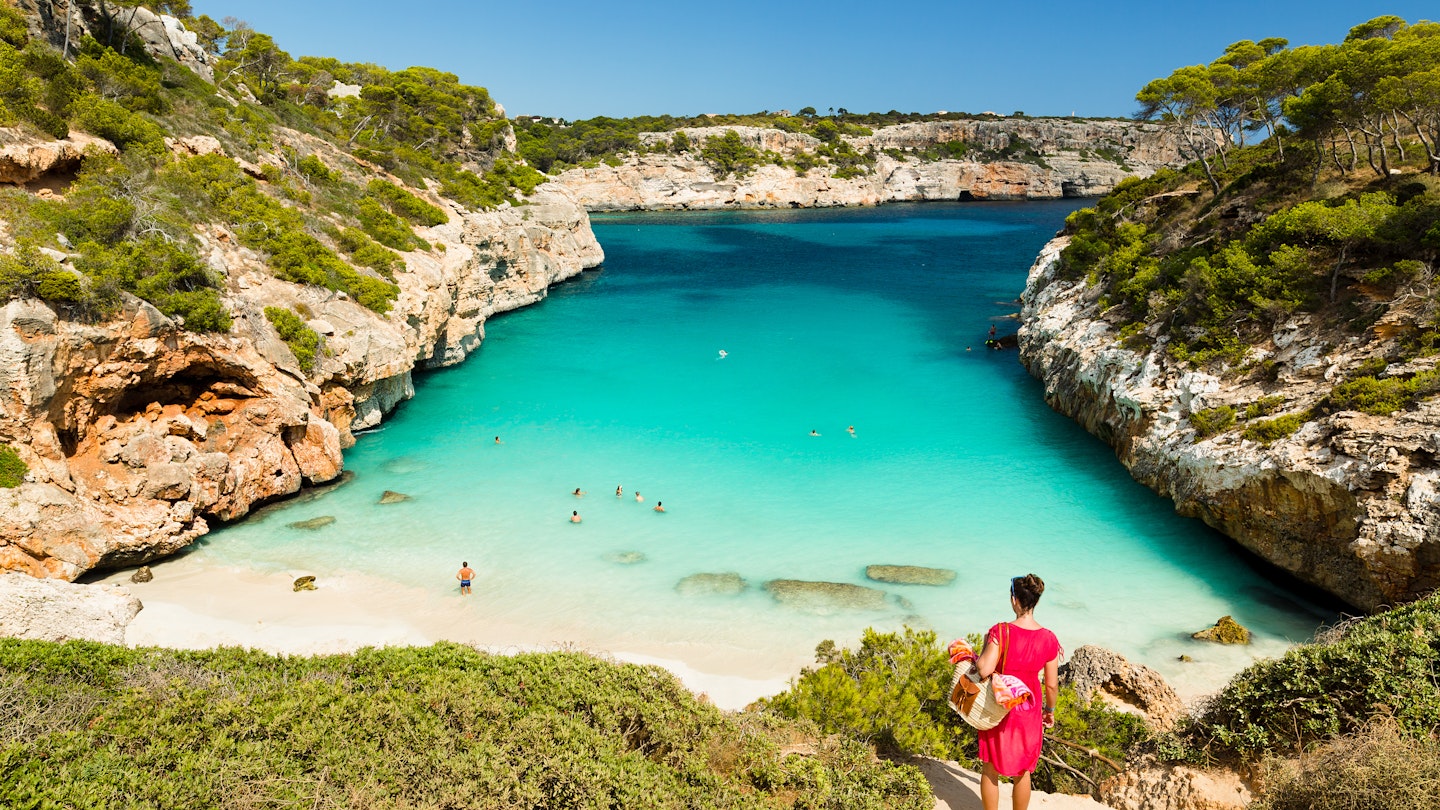
Here's what to expect if you're headed to the Canary or Balearic Islands for a holiday © Getty Images/iStockphoto
Just ahead of welcoming visitors flocking to its islands for the Easter break, the Canaries in Spain are suspending some COVID-19 safety measures.
The rollback means that restaurants, clubs and other businesses in Gran Canaria , La Palma and Tenerife can return to normal operating hours and full capacity.
"We have tools to control the pandemic. But we remain vigilant. If circumstances worsen, we will reactivate them. It's not the end yet," said President Ángel Victor Torres Pérez of the Canaries in announcing the rollback of requirements.
Currently, 78.8% of residents of the Canary Islands are vaccinated against coronavirus.
The move follows Spain's other popular island destination — the Balearics — also rolling back their COVID-19 requirements.
Here are some of the things to consider if you’re headed to one of these popular Easter-break destinations.
Travel requirements to enter Spain
To enter Spain, you’ll need to fill out the digital Health Control Form . You’ll also need to present a certificate proving full vaccination if traveling from a non-European Union country. Unvaccinated travelers from outside the European Union and Schengen Zone are not allowed to travel to Spain for non-essential reasons. This includes Americans and British tourists.
In addition, if you’re arriving from a country of high risk , you have to have a COVID-19 test before arriving. Antigen tests must be done 48 hours prior to arrival and PCR tests no more than 72 hours prior to arrival.
Since February 1, Spain also requires your last dose of your primary regime of the vaccine be within the past 270 days. If it is outside that window, you’ll need to present proof of a booster shot taken no less than 14-days prior.
Read more: Which of the Canary Islands is best for you?
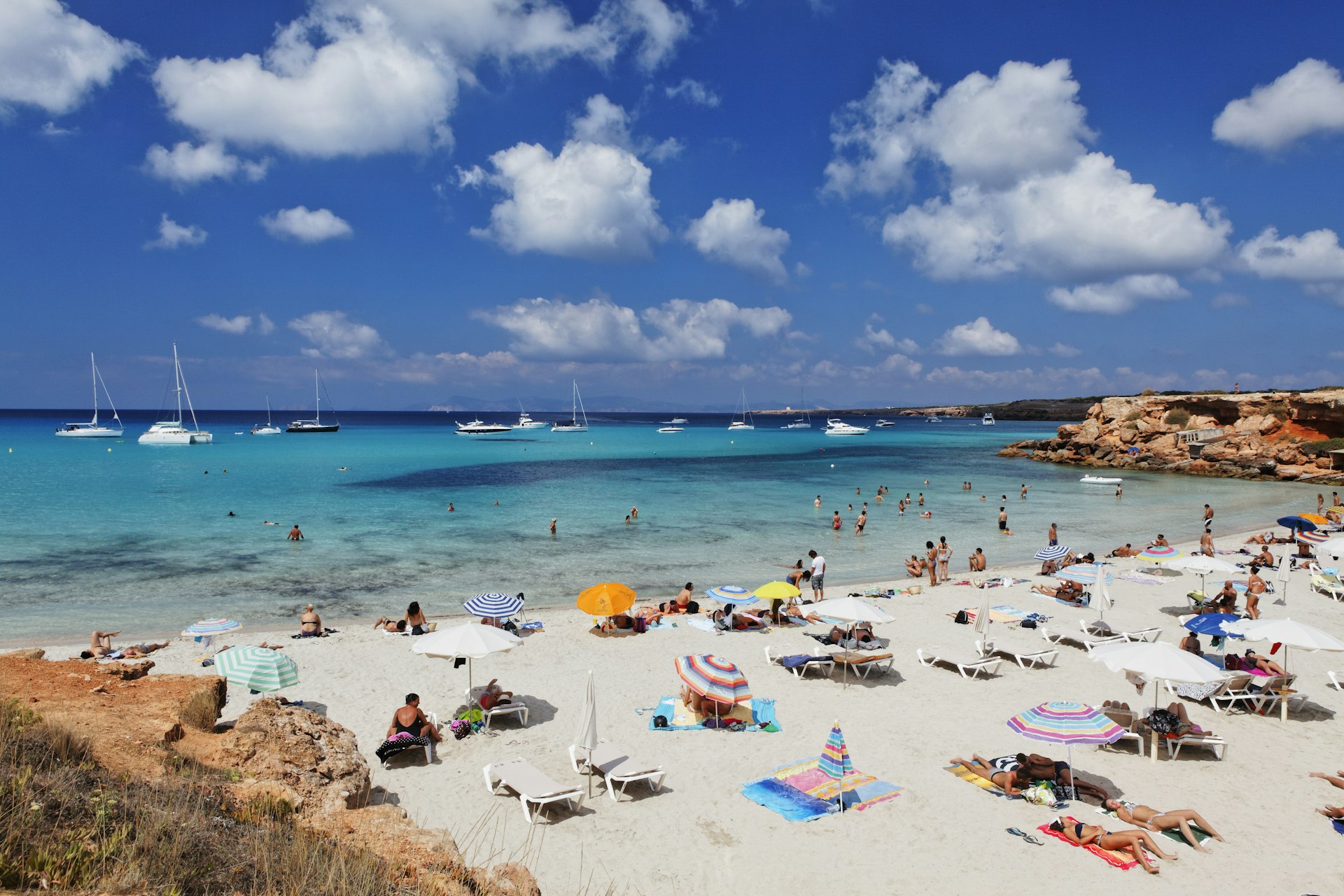
Masks still required in many indoor places
Though COVID-19 capacity restrictions have rolled back and masks are no longer required outdoors, tuck one in your pocket because masks are still required in indoor public places.
You may also need to show proof of vaccination to enter some establishments.
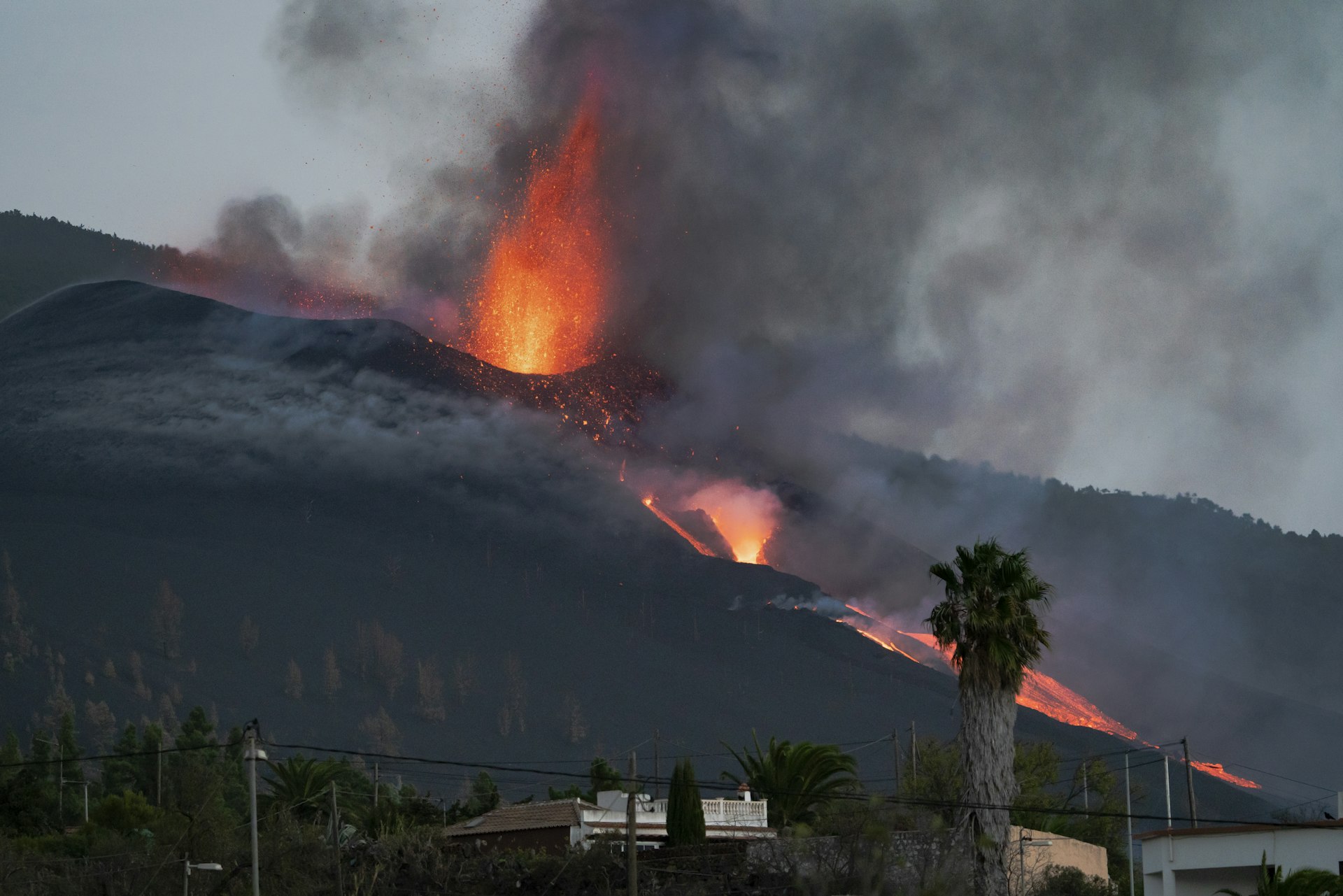
La Palma recovering from the volcano
Along with the COVID-19 pandemic, the island of La Palma is recovering from a natural disaster. The volcanic eruption that started September 19 ended on December 25. The tourism website estimates 10% of the island was impacted by the volcano and is currently trying to reconstruct.
While the island is open and welcoming visitors, it asks that you respect safety instructions as it rebuilds from the damage done by the volcano.
For more information on COVID-19 and travel, check out Lonely Planet's Health Hub .
You might also like: The best time to go to Spain The 10 best beaches in Spain 8 incredible national parks in Spain
This article was first published January 2022 and updated March 2022
Explore related stories
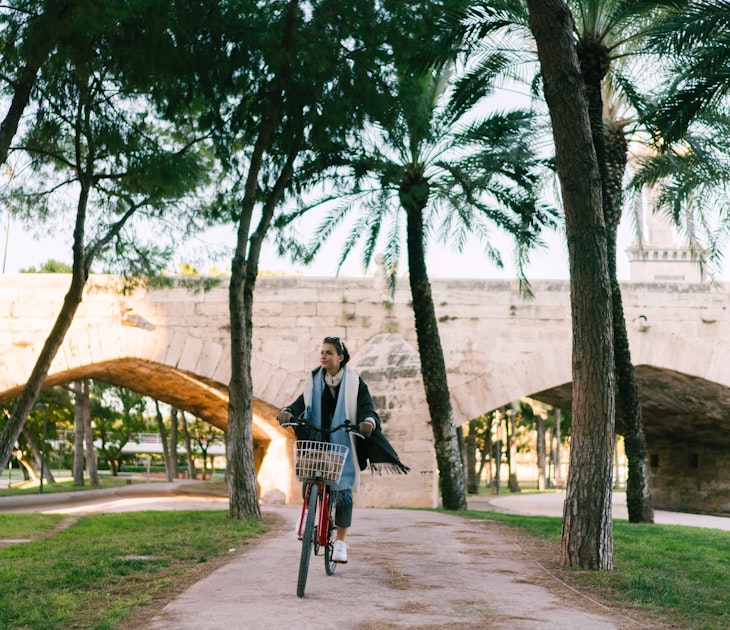
Apr 16, 2024 • 7 min read
Explore the Old Town, go for a leisurely cycle with kids, or head further afield on a former train line with these top rides around Valencia.

Apr 3, 2024 • 15 min read
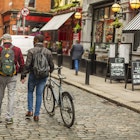
Mar 31, 2024 • 6 min read
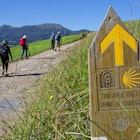
Mar 25, 2024 • 6 min read
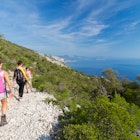
Mar 20, 2024 • 6 min read

Mar 20, 2024 • 8 min read
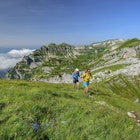
Mar 14, 2024 • 16 min read
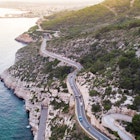
Mar 13, 2024 • 7 min read

Mar 8, 2024 • 17 min read
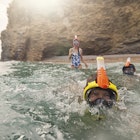
Mar 7, 2024 • 10 min read
By clicking a retailer link you consent to third party cookies that track your onward journey. If you make a purchase, Which? will receive an affiliate commission which supports our mission to be the UK's consumer champion .
Canary Islands travel advice: Covid entry requirements, mask wearing and post-Brexit passport rules

There are no longer any Covid restrictions for travellers entering the Canary Islands.
Year-round sunshine makes Tenerife, Lanzarote, Gran Canaria and Fuerteventura a popular option for half-term and winter sun, and until 21 October travellers needed to show proof of full vaccination, recovery from Covid or a negative Covid test. But all these requirements have come to an end and there is no longer any need to fill out a health control form to enter the Canary Islands.
However, all British passport holders do need to check if their passport is valid for travel to the EU as the entry rules have changed since Brexit. Your passport needs to have been issued less than 10 years before your arrival date and be valid for at least three months after your departure. These passport expiry rules apply to travel to any EU country apart from Ireland, including the Canary Islands and Spain.
British passport holders could also be asked to prove they have sufficient financial means for their trip and can access €100 per person per day for its duration - and could be denied entry if they fail to do so. While few travellers are asked to prove this, spot checks do take place in Spain - and holidaymakers landing in the Canary Islands could, in theory, be asked as well.
This advice is based on the latest guidance from the Foreign, Commonwealth & Development Office (FCDO) for UK travellers, who are considered citizens of a third country by the EU since Brexit. Before travelling abroad, check the entry requirements on the gov.uk website . Travel restrictions can change very quickly and without warning.
Read on for more information on what UK travellers need to do before travelling, and the rules in the Canary Islands on mask wearing.
Book your package holiday to the Canaries with a highly rated Which? recommended provider: Hays , Jet2 , Kuoni , Trailfinders
What are the Canary Islands’ Covid entry requirements for UK holidaymakers?
From 21 October 2022, all Covid travel restrictions for travellers to Spain and the Canary Islands have been lifted. The rules that previously applied to travellers entering Spain no longer apply.
You are no longer required to show proof of vaccination, a Covid test or recovery. You no longer need to complete a health control form.
Comparing short-haul airlines? Pick an airline rated highly in our latest airlines survey: Jet2 , KLM, easyJet
What are the Canary Islands’ Covid rules while I am there?
Local rules have been dropped, including venue curfews and capacity limits, restrictions on the number of people allowed to sit at a table and so-called 'dancing bans'.
Will I need to wear a mask?
Anyone over the age of six must wear a mask on public transport, including taxis. Masks also need to be worn in pharmacies, hospitals and medical centres.
What should I do if I have Covid symptoms during my trip?
There’s no need to self-isolate but you should wear a mask, reduce social interactions and avoid crowded spaces and big events. It's a good idea to check if your hotel or accommodation-provider has in-house rules about what guests with Covid should and should not do.
The tourist board has a list of authorised medical centres offering tests, or you can buy rapid lateral flow tests ("pruebas de antigenos") in most pharmacies. If your symptoms are severe, the Canary Islands has a regional hotline with English-speaking staff: +34 928 301012 for Gran Canaria, Fuerteventura, Lanzarote, or +34 922 470012 for Tenerife, La Gomera and La Palma.
What Covid forms, tests and quarantines are required when I return to the UK?
The rules on returning to the UK changed in March 2022 . Regardless of vaccination status, you no longer need to take any tests or fill out a passenger locator form to enter the UK.

Related articles

- Share on Facebook
- Share by email
- Lanzarote Tourism
- Lanzarote Hotels
- Lanzarote Bed and Breakfast
- Lanzarote Holiday Rentals
- Flights to Lanzarote
- Lanzarote Restaurants
- Lanzarote Attractions
- Lanzarote Travel Forum
- Lanzarote Photos
- Lanzarote Map
- All Lanzarote Hotels
- Lanzarote Hotel Deals
- Last Minute Hotels in Lanzarote
- Things to Do
- Restaurants
- Holiday Rentals
- Travel Stories
- Add a Place
- Travel Forum
- Travellers' Choice
- Help Centre
FCDO Website Update Updated information on Covid-19 testing - Lanzarote Forum
- Europe
- Spain
- Canary Islands
- Lanzarote
FCDO Website Update Updated information on Covid-19 testing
- Ireland Forums
- United States Forums
- Europe Forums
- Canada Forums
- Asia Forums
- Central America Forums
- Africa Forums
- Caribbean Forums
- Mexico Forums
- South Pacific Forums
- South America Forums
- Middle East Forums
- Honeymoons and Romance
- Business Travel
- Train Travel
- Traveling With Disabilities
- Tripadvisor Support
- Solo Travel
- Bargain Travel
- Timeshares / Holiday Rentals
- Canary Islands forums
- Lanzarote forum

From the FCDO website updated today. No mention of Antigen tests or the Cañarían Government legislation.
From 10 December, a TMA (Transcription-Mediated Amplification) swab test or a LAMP (Loop-Mediated Isothermal Amplification) test are also accepted by Spanish authorities, again taken within no more than 72 hours prior to arrival. While TMA and LAMP tests are not currently widely available in the UK, you should refer to testing facilities directly for information on the types of tests available to you, prior to booking an appointment. The UK is currently on the ‘risk’ countries list and passengers arriving from the UK are therefore subject to this requirement.
https://www.gov.uk/foreign-travel-advice/spain?utm_source=ab17935a-7d4a-42dd-b857-6b5d3857b16c&utm_medium=email&utm_campaign=govuk-notifications&utm_content=immediate
So, behind the scenes manoeuvres. The UK government is continuing to recognise the Spanish national government laws rather than those of the regional government of the Canarias. Checkmate.

Looks like they have updated Canary Islands advice to include antigen tests...
https://www.gov.uk/foreign-travel-advice/spain/entry-requirements
Testing requirements specifc to Canary Islands
Negative COVID-19 antigen tests may be accepted by health authorities on arrival to the Canary Islands. See here for information from Canary Island Tourism Authority and check any further entry requirements with your travel provider prior to travel.
If you are booked into regulated tourist accommodation in the Canaries, you will be obliged to:
present an official, negative COVID-19 test taken no more than 72 hours earlier, when checking in to your accommodation. This can be the same test used to enter the Canary Islands providing you check-in within the 72 hours of having taken the test.
download and activate the Radar COVID notification app throughout your stay on the islands, and for 15 days after your return home. These measures are specific to the Canary Islands and apply to all guests aged 6 years and over, unless they have proof of travel confirming their uninterrupted presence on the islands for the previous 15 days. Any traveller failing to comply, risks being refused access to accommodation. For further information, refer to guidance from the Canarian tourist board, and check with your accommodation provider prior to travel
Totally confused now if the FCDO are now confirming antegen test are OK for canaries then why are jet 2 still not excepting them.
Totally confused if the FCDO are now saying antigen tests are OK for the canaries why are jet 2 still not excepting them...
It appears that that it has been further update to reflect the respective entry requirements into mainland Spain, The Canary Islands and the Balearics Islands. We are arriving between Christmas and New Year and already have a PCR booked. My view is that will hopefully be accepted as it’s the more accurate test.
We are travelling this Saturday 19th. And have pcr tests booked for Wednesday at collision mcr Airport. I'm sure there will be more changes before sat.
The ongoing issue between the Canarian Government and the Central Government with regards to cheap rapid antigen tests has not been resolved, so as it stands you can't get a QR code with one, unless you lie.
Janet Anscombe tweeted yesterday
"Border control policing Spanish not Canarian regulations so bring a PCR or TMA test not an antigen test for anyone over six years of age".
Border patrol is done by Central Government, not the Canarian Government.

I have a test booked for tomorrow but I have a quick query re the SPTH form. Is a LAMP test an option on the form. I can't complete the form until Thursday at the earliest and I don't want to have that test if I can't complete the form.
A Lamp test isn't an option listed by Central Government as far as I know. It's a PCR or TMA. Off topic, where have you found a Lamp test available to the public in the UK?
At East Midlands Airport (Collinson). I think it is available at all the Collinson sites. It's slightly cheaper and faster than the PCR test
- Are Hipoclub villas too far out of town? Is there a bus? 00:15
- Smoking in public Areas 21:58
- Table reservations 18:34
- Restaurants for large groups old town 17:33
- First time we visit Puerto del Carmen 15:57
- Hotels with 2 bed apartments today
- Tapas today
- Greek restaurant today
- Pick up time today
- Taxi from airport to playa blanca yesterday
- Steak yesterday
- late night supermarket 15 April 2024
- Taxi cost 15 April 2024
- Ev charging points 15 April 2024
- Taxis to Puerto del Carmen 27 replies
- hotel with kids club 4 replies
- porta del carmen 2 replies
- Weather in February? 9 replies
- best beaches for nude sunbathing? 17 replies
- Where to stay in Lanzarote? 7 replies
- Lanzerote weather in March? 15 replies
- Prices for wedding reception in Lanzarote pretty steep??? 12 replies
- Puerto del Carmen old town 20 replies
- club las vistas apartments 4 replies
Lanzarote Hotels and Places to Stay
- Trip Reports - Please provide them here
- Gluten Free In Lanzarote Resorts
- The Beaches Of Lanzarote
- Car hirers 'beware'
- Don't Buy JEWELLERY, ELECTRONICS OR CAMERAS in Lanzarote resorts
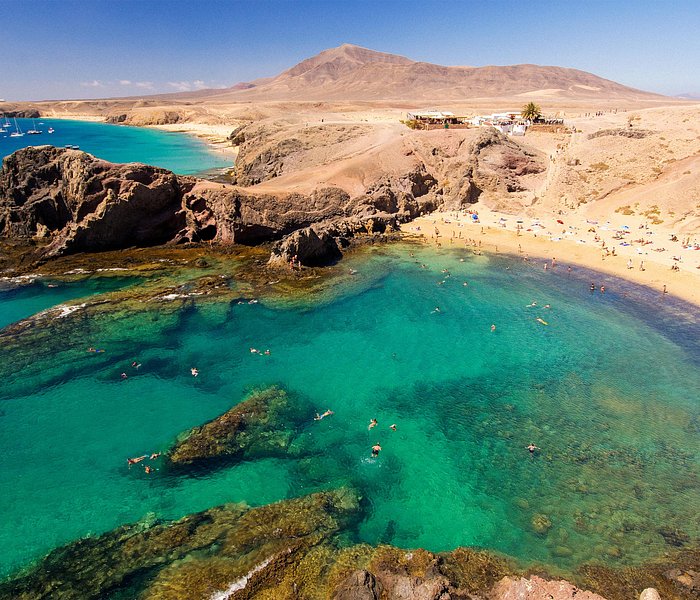
- Skip to primary navigation
- Skip to main content
- Skip to footer
Before Header
- CONVENTION BUREAU
- EUROPEAN SPORTS DESTINATION
- FILM COMMISSION
- SUPERYACHT DESTINATION
- TASTING LANZAROTE
Turismo Lanzarote

SOME PLACES IN THE WORLD ARE SPECIAL
Lanzarote is different than other sun and sea destinations. It’s an island where nature and art prevail . A place where the people are as warm as they are active and proud . Where the food tastes of the sea and the earth . Where the essence of the island leaves a mark on your soul long after you depart. That’s The Lanzarote Effect .
CACT LANZAROTE CENTRES FOR ART, CULTURE AND TOURISM
FIND IT OUT FOR YOURSELF
SHOPPING AND MARKETS
LEISURE AND FREE TIME
GASTRONOMY AND WINES

NOCHES DE JAMEOS

Montañas del Fuego. “Insólita” experience

Jameos del Agua. “Insólita” Experience

Cactus Garden. Insólita Experience

NAVEGANDO POR LA MEMORIA. Colección de maquetas de barcos. Marcial Cabrera Reyes

Francisco Céspedes

Averno | Performing Arts Festival

Mongolia, el Show

The Next Movement The Belingueo by Sonidos Líquidos

LAST BLOG POSTS

A walk through the ‘Magic Villages’ of Lanzarote

Get away this Easter by land, air and sea

The Nine Commandments of Arrecife’s Carnival

Wish on the stars above Lanzarote and La Graciosa to make your New Year’s dreams come true

A Family Christmas under the Lanzarote Sun

The six treasures by César Manrique that awaken all the senses

Before Footer
KEEP ME INFORMED ABOUT WHAT HAPPENS IN LANZAROTE

TURISMO LANZAROTE
- Lanzarote Convention Bureau
- Lanzarote European Sports Destination
- Lanzarote Film Commission
- Lanzarote Superyacht Destination
- Tasting Lanzarote
DISCOVER LANZAROTE
- The Lanzarote Effect
- Arts and culture
- Gastronomy and wines
- Sustainanility
PLAN YOUR TRIP
- Tourist information offices
- Practical information
- Connections by air
- Getting around
- Accommodation
WHAT TO SEE
- Events Calendar
- Leisure and free time
- Food and drinks
- Wellness & Spa
- The Hidden Corners of Lanzarote
- CACT Lanzarote
- Beaches and natural pools
- La Graciosa Island
A walk through the 'Magic Villages' of Lanzarote Just like in Mexico, Lanzarote also boasts magical villages that tell the story of a mythical island where human beings live in a friendly coexistence with the elements: sea, wind, land, volcano... These are unique places that have preserved their original architecture, traditions, history and culture. Would [...]
Utilizamos cookies de terceros para analizar y personalizar su navegación. Aquellas que son analíticas o de rendimiento puede aceptarlas o configurarlas aquí:
You are using an outdated browser. Upgrade your browser today or install Google Chrome Frame to better experience this site.
Canary Islands (Spain) Traveler View
Travel health notices, vaccines and medicines, non-vaccine-preventable diseases, stay healthy and safe.
- Packing List
After Your Trip
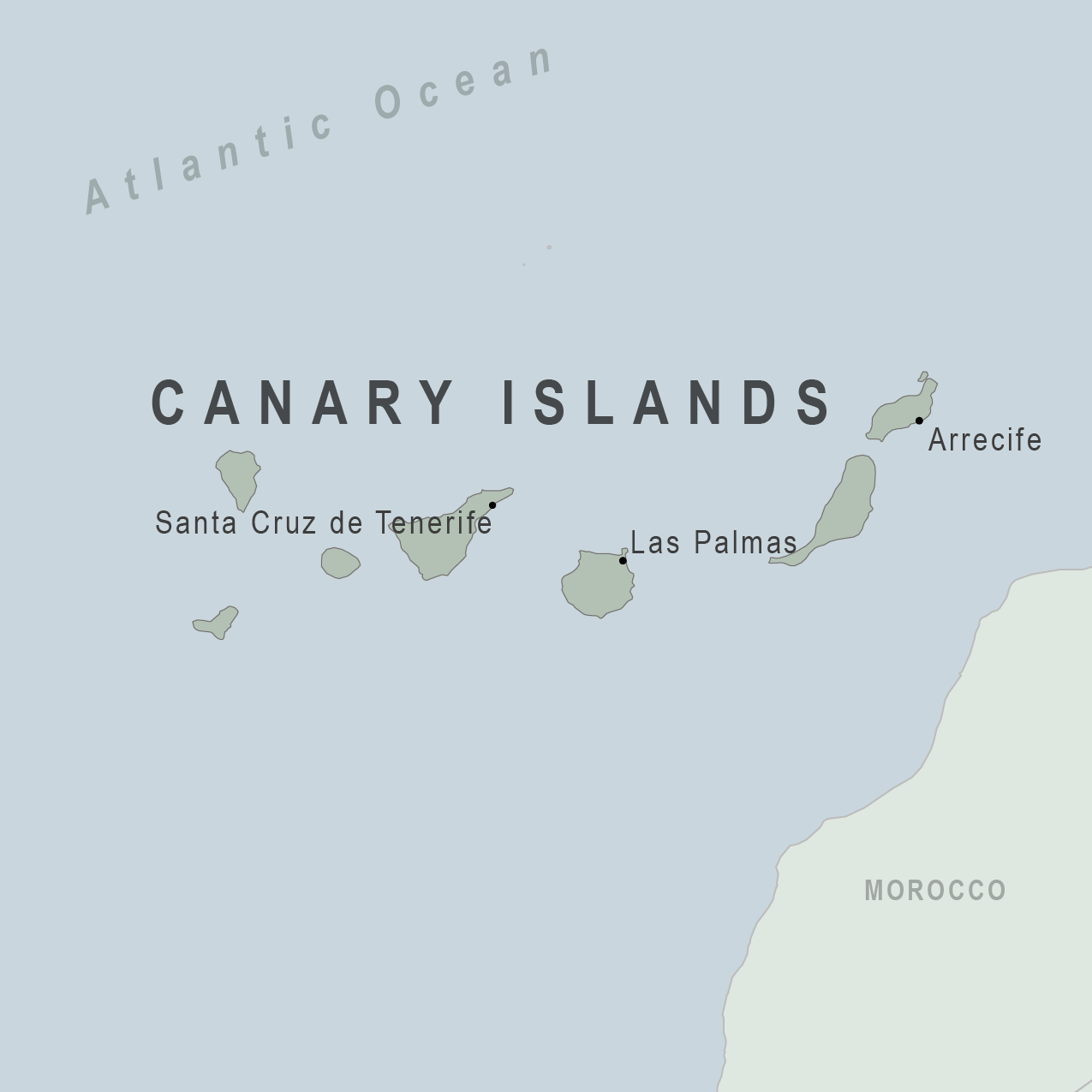
There are no notices currently in effect for Canary Islands (Spain).
⇧ Top
Check the vaccines and medicines list and visit your doctor at least a month before your trip to get vaccines or medicines you may need. If you or your doctor need help finding a location that provides certain vaccines or medicines, visit the Find a Clinic page.
Routine vaccines
Recommendations.
Make sure you are up-to-date on all routine vaccines before every trip. Some of these vaccines include
- Chickenpox (Varicella)
- Diphtheria-Tetanus-Pertussis
- Flu (influenza)
- Measles-Mumps-Rubella (MMR)
Immunization schedules
All eligible travelers should be up to date with their COVID-19 vaccines. Please see Your COVID-19 Vaccination for more information.
COVID-19 vaccine
Hepatitis A
Consider hepatitis A vaccination for most travelers. It is recommended for travelers who will be doing higher risk activities, such as visiting smaller cities, villages, or rural areas where a traveler might get infected through food or water. It is recommended for travelers who plan on eating street food.
Hepatitis A - CDC Yellow Book
Dosing info - Hep A
Hepatitis B
Recommended for unvaccinated travelers of all ages traveling to the Canary Islands.
Hepatitis B - CDC Yellow Book
Dosing info - Hep B
Cases of measles are on the rise worldwide. Travelers are at risk of measles if they have not been fully vaccinated at least two weeks prior to departure, or have not had measles in the past, and travel internationally to areas where measles is spreading.
All international travelers should be fully vaccinated against measles with the measles-mumps-rubella (MMR) vaccine, including an early dose for infants 6–11 months, according to CDC’s measles vaccination recommendations for international travel .
Measles (Rubeola) - CDC Yellow Book
the Canary Islands is free of dog rabies. However, rabies may still be present in wildlife species, particularly bats. CDC recommends rabies vaccination before travel only for people working directly with wildlife. These people may include veterinarians, animal handlers, field biologists, or laboratory workers working with specimens from mammalian species.
Rabies - CDC Yellow Book
Avoid contaminated water
Leptospirosis
How most people get sick (most common modes of transmission)
- Touching urine or other body fluids from an animal infected with leptospirosis
- Swimming or wading in urine-contaminated fresh water, or contact with urine-contaminated mud
- Drinking water or eating food contaminated with animal urine
- Avoid contaminated water and soil
Clinical Guidance
Airborne & droplet.
- Breathing in air or accidentally eating food contaminated with the urine, droppings, or saliva of infected rodents
- Bite from an infected rodent
- Less commonly, being around someone sick with hantavirus (only occurs with Andes virus)
- Avoid rodents and areas where they live
- Avoid sick people
Tuberculosis (TB)
- Breathe in TB bacteria that is in the air from an infected and contagious person coughing, speaking, or singing.
Learn actions you can take to stay healthy and safe on your trip. Vaccines cannot protect you from many diseases in the Canary Islands, so your behaviors are important.
Eat and drink safely
Food and water standards around the world vary based on the destination. Standards may also differ within a country and risk may change depending on activity type (e.g., hiking versus business trip). You can learn more about safe food and drink choices when traveling by accessing the resources below.
- Choose Safe Food and Drinks When Traveling
- Water Treatment Options When Hiking, Camping or Traveling
- Global Water, Sanitation and Hygiene | Healthy Water
- Avoid Contaminated Water During Travel
You can also visit the Department of State Country Information Pages for additional information about food and water safety.
Prevent bug bites
Bugs (like mosquitoes, ticks, and fleas) can spread a number of diseases in the Canary Islands. Many of these diseases cannot be prevented with a vaccine or medicine. You can reduce your risk by taking steps to prevent bug bites.
What can I do to prevent bug bites?
- Cover exposed skin by wearing long-sleeved shirts, long pants, and hats.
- Use an appropriate insect repellent (see below).
- Use permethrin-treated clothing and gear (such as boots, pants, socks, and tents). Do not use permethrin directly on skin.
- Stay and sleep in air-conditioned or screened rooms.
- Use a bed net if the area where you are sleeping is exposed to the outdoors.
What type of insect repellent should I use?
- FOR PROTECTION AGAINST TICKS AND MOSQUITOES: Use a repellent that contains 20% or more DEET for protection that lasts up to several hours.
- Picaridin (also known as KBR 3023, Bayrepel, and icaridin)
- Oil of lemon eucalyptus (OLE) or para-menthane-diol (PMD)
- 2-undecanone
- Always use insect repellent as directed.
What should I do if I am bitten by bugs?
- Avoid scratching bug bites, and apply hydrocortisone cream or calamine lotion to reduce the itching.
- Check your entire body for ticks after outdoor activity. Be sure to remove ticks properly.
What can I do to avoid bed bugs?
Although bed bugs do not carry disease, they are an annoyance. See our information page about avoiding bug bites for some easy tips to avoid them. For more information on bed bugs, see Bed Bugs .
For more detailed information on avoiding bug bites, see Avoid Bug Bites .
Stay safe outdoors
If your travel plans in the Canary Islands include outdoor activities, take these steps to stay safe and healthy during your trip.
- Stay alert to changing weather conditions and adjust your plans if conditions become unsafe.
- Prepare for activities by wearing the right clothes and packing protective items, such as bug spray, sunscreen, and a basic first aid kit.
- Consider learning basic first aid and CPR before travel. Bring a travel health kit with items appropriate for your activities.
- If you are outside for many hours in heat, eat salty snacks and drink water to stay hydrated and replace salt lost through sweating.
- Protect yourself from UV radiation : use sunscreen with an SPF of at least 15, wear protective clothing, and seek shade during the hottest time of day (10 a.m.–4 p.m.).
- Be especially careful during summer months and at high elevation. Because sunlight reflects off snow, sand, and water, sun exposure may be increased during activities like skiing, swimming, and sailing.
- Very cold temperatures can be dangerous. Dress in layers and cover heads, hands, and feet properly if you are visiting a cold location.
Stay safe around water
- Swim only in designated swimming areas. Obey lifeguards and warning flags on beaches.
- Practice safe boating—follow all boating safety laws, do not drink alcohol if driving a boat, and always wear a life jacket.
- Do not dive into shallow water.
- Do not swim in freshwater in developing areas or where sanitation is poor.
- Avoid swallowing water when swimming. Untreated water can carry germs that make you sick.
- To prevent infections, wear shoes on beaches where there may be animal waste.
Keep away from animals
Most animals avoid people, but they may attack if they feel threatened, are protecting their young or territory, or if they are injured or ill. Animal bites and scratches can lead to serious diseases such as rabies.
Follow these tips to protect yourself:
- Do not touch or feed any animals you do not know.
- Do not allow animals to lick open wounds, and do not get animal saliva in your eyes or mouth.
- Avoid rodents and their urine and feces.
- Traveling pets should be supervised closely and not allowed to come in contact with local animals.
- If you wake in a room with a bat, seek medical care immediately. Bat bites may be hard to see.
All animals can pose a threat, but be extra careful around dogs, bats, monkeys, sea animals such as jellyfish, and snakes. If you are bitten or scratched by an animal, immediately:
- Wash the wound with soap and clean water.
- Go to a doctor right away.
- Tell your doctor about your injury when you get back to the United States.
Consider buying medical evacuation insurance. Rabies is a deadly disease that must be treated quickly, and treatment may not be available in some countries.
Reduce your exposure to germs
Follow these tips to avoid getting sick or spreading illness to others while traveling:
- Wash your hands often, especially before eating.
- If soap and water aren’t available, clean hands with hand sanitizer (containing at least 60% alcohol).
- Don’t touch your eyes, nose, or mouth. If you need to touch your face, make sure your hands are clean.
- Cover your mouth and nose with a tissue or your sleeve (not your hands) when coughing or sneezing.
- Try to avoid contact with people who are sick.
- If you are sick, stay home or in your hotel room, unless you need medical care.
Avoid sharing body fluids
Diseases can be spread through body fluids, such as saliva, blood, vomit, and semen.
Protect yourself:
- Use latex condoms correctly.
- Do not inject drugs.
- Limit alcohol consumption. People take more risks when intoxicated.
- Do not share needles or any devices that can break the skin. That includes needles for tattoos, piercings, and acupuncture.
- If you receive medical or dental care, make sure the equipment is disinfected or sanitized.
Know how to get medical care while traveling
Plan for how you will get health care during your trip, should the need arise:
- Carry a list of local doctors and hospitals at your destination.
- Review your health insurance plan to determine what medical services it would cover during your trip. Consider purchasing travel health and medical evacuation insurance.
- Carry a card that identifies, in the local language, your blood type, chronic conditions or serious allergies, and the generic names of any medications you take.
- Some prescription drugs may be illegal in other countries. Call the Canary Islands’s embassy to verify that all of your prescription(s) are legal to bring with you.
- Bring all the medicines (including over-the-counter medicines) you think you might need during your trip, including extra in case of travel delays. Ask your doctor to help you get prescriptions filled early if you need to.
Many foreign hospitals and clinics are accredited by the Joint Commission International. A list of accredited facilities is available at their website ( www.jointcommissioninternational.org ).
In some countries, medicine (prescription and over-the-counter) may be substandard or counterfeit. Bring the medicines you will need from the United States to avoid having to buy them at your destination.
Select safe transportation
Motor vehicle crashes are the #1 killer of healthy US citizens in foreign countries.
In many places cars, buses, large trucks, rickshaws, bikes, people on foot, and even animals share the same lanes of traffic, increasing the risk for crashes.
Be smart when you are traveling on foot.
- Use sidewalks and marked crosswalks.
- Pay attention to the traffic around you, especially in crowded areas.
- Remember, people on foot do not always have the right of way in other countries.
Riding/Driving
Choose a safe vehicle.
- Choose official taxis or public transportation, such as trains and buses.
- Ride only in cars that have seatbelts.
- Avoid overcrowded, overloaded, top-heavy buses and minivans.
- Avoid riding on motorcycles or motorbikes, especially motorbike taxis. (Many crashes are caused by inexperienced motorbike drivers.)
- Choose newer vehicles—they may have more safety features, such as airbags, and be more reliable.
- Choose larger vehicles, which may provide more protection in crashes.
Think about the driver.
- Do not drive after drinking alcohol or ride with someone who has been drinking.
- Consider hiring a licensed, trained driver familiar with the area.
- Arrange payment before departing.
Follow basic safety tips.
- Wear a seatbelt at all times.
- Sit in the back seat of cars and taxis.
- When on motorbikes or bicycles, always wear a helmet. (Bring a helmet from home, if needed.)
- Avoid driving at night; street lighting in certain parts of the Canary Islands may be poor.
- Do not use a cell phone or text while driving (illegal in many countries).
- Travel during daylight hours only, especially in rural areas.
- If you choose to drive a vehicle in the Canary Islands, learn the local traffic laws and have the proper paperwork.
- Get any driving permits and insurance you may need. Get an International Driving Permit (IDP). Carry the IDP and a US-issued driver's license at all times.
- Check with your auto insurance policy's international coverage, and get more coverage if needed. Make sure you have liability insurance.
- Avoid using local, unscheduled aircraft.
- If possible, fly on larger planes (more than 30 seats); larger airplanes are more likely to have regular safety inspections.
- Try to schedule flights during daylight hours and in good weather.
Medical Evacuation Insurance
If you are seriously injured, emergency care may not be available or may not meet US standards. Trauma care centers are uncommon outside urban areas. Having medical evacuation insurance can be helpful for these reasons.
Helpful Resources
Road Safety Overseas (Information from the US Department of State): Includes tips on driving in other countries, International Driving Permits, auto insurance, and other resources.
The Association for International Road Travel has country-specific Road Travel Reports available for most countries for a minimal fee.
Maintain personal security
Use the same common sense traveling overseas that you would at home, and always stay alert and aware of your surroundings.
Before you leave
- Research your destination(s), including local laws, customs, and culture.
- Monitor travel advisories and alerts and read travel tips from the US Department of State.
- Enroll in the Smart Traveler Enrollment Program (STEP) .
- Leave a copy of your itinerary, contact information, credit cards, and passport with someone at home.
- Pack as light as possible, and leave at home any item you could not replace.
While at your destination(s)
- Carry contact information for the nearest US embassy or consulate .
- Carry a photocopy of your passport and entry stamp; leave the actual passport securely in your hotel.
- Follow all local laws and social customs.
- Do not wear expensive clothing or jewelry.
- Always keep hotel doors locked, and store valuables in secure areas.
- If possible, choose hotel rooms between the 2nd and 6th floors.
Healthy Travel Packing List
Use the Healthy Travel Packing List for Canary Islands (Spain) for a list of health-related items to consider packing for your trip. Talk to your doctor about which items are most important for you.
Why does CDC recommend packing these health-related items?
It’s best to be prepared to prevent and treat common illnesses and injuries. Some supplies and medicines may be difficult to find at your destination, may have different names, or may have different ingredients than what you normally use.
If you are not feeling well after your trip, you may need to see a doctor. If you need help finding a travel medicine specialist, see Find a Clinic . Be sure to tell your doctor about your travel, including where you went and what you did on your trip. Also tell your doctor if you were bitten or scratched by an animal while traveling.
For more information on what to do if you are sick after your trip, see Getting Sick after Travel .
Map Disclaimer - The boundaries and names shown and the designations used on maps do not imply the expression of any opinion whatsoever on the part of the Centers for Disease Control and Prevention concerning the legal status of any country, territory, city or area or of its authorities, or concerning the delimitation of its frontiers or boundaries. Approximate border lines for which there may not yet be full agreement are generally marked.
Other Destinations
If you need help finding travel information:
Message & data rates may apply. CDC Privacy Policy
File Formats Help:
- Adobe PDF file
- Microsoft PowerPoint file
- Microsoft Word file
- Microsoft Excel file
- Audio/Video file
- Apple Quicktime file
- RealPlayer file
- Zip Archive file
Exit Notification / Disclaimer Policy
- The Centers for Disease Control and Prevention (CDC) cannot attest to the accuracy of a non-federal website.
- Linking to a non-federal website does not constitute an endorsement by CDC or any of its employees of the sponsors or the information and products presented on the website.
- You will be subject to the destination website's privacy policy when you follow the link.
- CDC is not responsible for Section 508 compliance (accessibility) on other federal or private website.
Cookies on GOV.UK
We use some essential cookies to make this website work.
We’d like to set additional cookies to understand how you use GOV.UK, remember your settings and improve government services.
We also use cookies set by other sites to help us deliver content from their services.
You have accepted additional cookies. You can change your cookie settings at any time.
You have rejected additional cookies. You can change your cookie settings at any time.
- Passports, travel and living abroad
- Travel abroad
- Foreign travel advice
Warnings and insurance
The Foreign, Commonwealth & Development Office (FCDO) provides advice about risks of travel to help British nationals make informed decisions. Find out more about FCDO travel advice .
Before you travel
No travel can be guaranteed safe. Read all the advice in this guide and any specific travel advice that applies to you:
- women travellers
- disabled travellers
- LGBT+ travellers
Follow and contact FCDO travel on Twitter , Facebook and Instagram . You can also sign up to get email notifications when this advice is updated.
Travel insurance
If you choose to travel, research your destinations and get appropriate travel insurance . Insurance should cover your itinerary, planned activities and expenses in an emergency.
Related content
Is this page useful.
- Yes this page is useful
- No this page is not useful
Help us improve GOV.UK
Don’t include personal or financial information like your National Insurance number or credit card details.
To help us improve GOV.UK, we’d like to know more about your visit today. We’ll send you a link to a feedback form. It will take only 2 minutes to fill in. Don’t worry we won’t send you spam or share your email address with anyone.

- You have not selected favourites
- See your favourites
- Download as PDF
- Download to your phone
- Test the planner
COVID-19 travel insurance policy
Suspended as from 3 march 2022..
IMPORTANT INFORMATION: THE COVID-19 TRAVEL INSURANCE POLICY IS SUSPENDED AS FROM 3 MARCH 2022.
Below you can find all the details of the insurance policy offered by the Canary Islands to tourists who visit the archipelago. A free insurance policy that covers the main costs - of medical expenses, transportation and extension of stay – so that all you have to do is enjoy yourself.
EXTENSIVE INFORMATION TO CLARIFY THE GROUP TRAVEL INSURANCE POLICY SIGNED BETWEEN PROMOTUR TURISMO CANARIAS S.A. AND AXA SEGUROS GENERALES, S.A. DE SEGUROS Y REASEGUROS.
Canary Islands is strengthening its commitment to its visitors for their safety and peace of mind with a group unnamed insurance policy for foreign and domestic tourists that are visiting the archipelago and any residents of the Canary Islands that are visiting other areas of the islands.
Tourists visiting any island in the Canary Islands archipelago for a minimum of 1 night and a maximum of 30 days, staying at regulated tourist establishments, who test positive in a PCR test for COVID-19 during their stay, will be considered insured parties , and also their accompanying relatives, even if the latter do not test positive.

- Medical, surgical, pharmaceutical and hospitalisation costs resulting from COVID -19.
- Healthcare transport or repatriation of COVID-19 patients or wounded.
- Costs of lengthening the insured party’s stay at a hotel (including in the event of quarantine or imposed confinement).
The above is without prejudice to other travel assistance guarantees if the insured party tests positive for COVID-19.
Below is a summary of the general terms and conditions, guarantees of cover and exclusions referred to in the policy.
General conditions
1 . Insured Party
Any passengers visiting the islands or moving between them by plane or boat as a tourist, with their corresponding travel document or ticket, during the period of insurance cover and with a reliable booking at regulated tourist accommodation during that period, will be covered by this policy

2 . Tourist
Person who is travelling away from their usual place of residence for at least 1 night.

3 . Relatives
The insured party’s relatives will be considered to be their spouse, civil partner or person who lives with them as such; ascendants or descendants to any degree of consanguinity (parents, children, grandparents, grandchildren) of either partner; and, as regards collateral relatives, only the brothers or sisters, nonblood brothers or sisters, brothers and sisters-in-law, sons and daughters-in-law or parents-in-law of either partner.
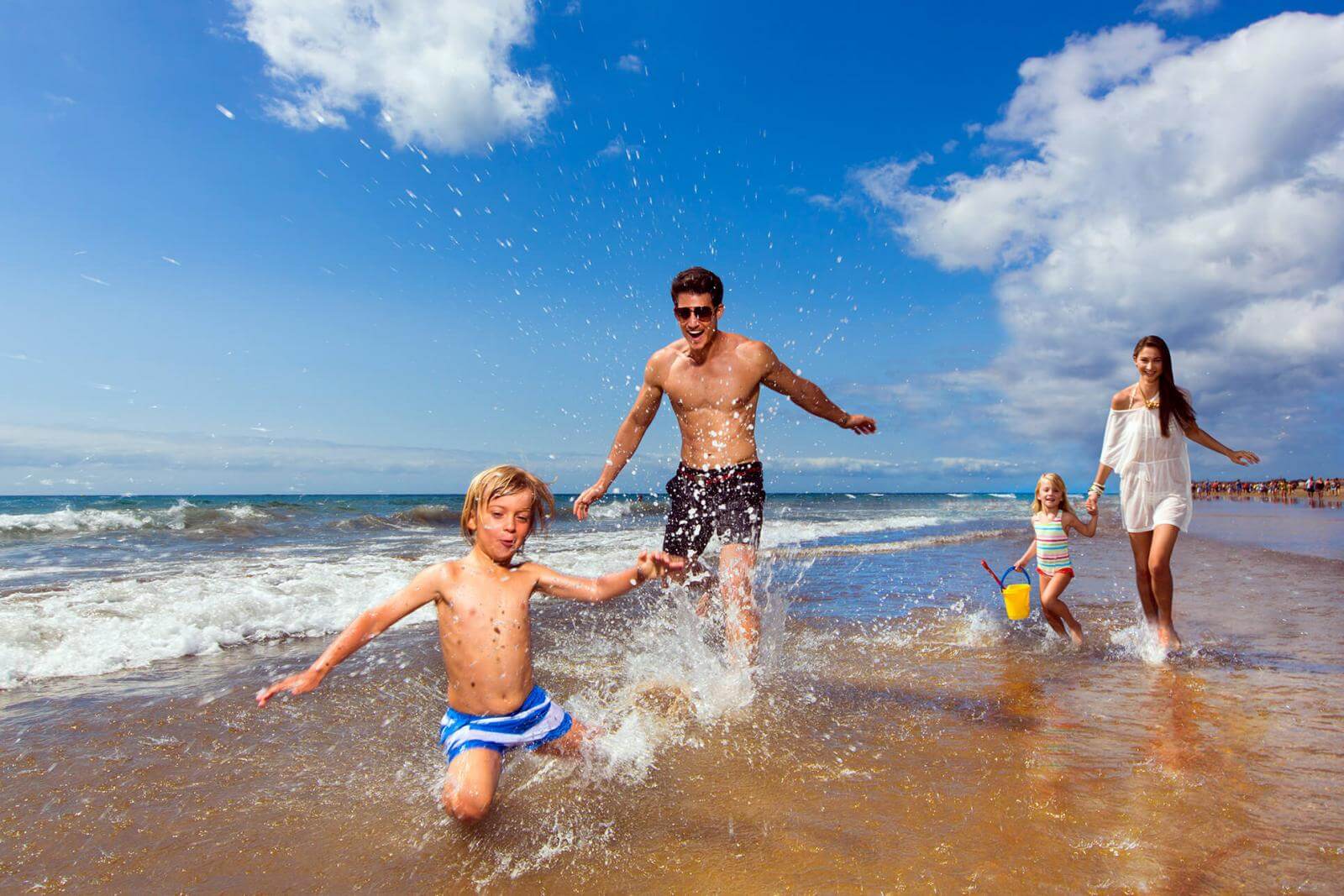
4 . Territoriality
These insurance guarantees only cover Canary Islands. The insurance company’s obligations end the moment the insured parties return to their usual place of residence.
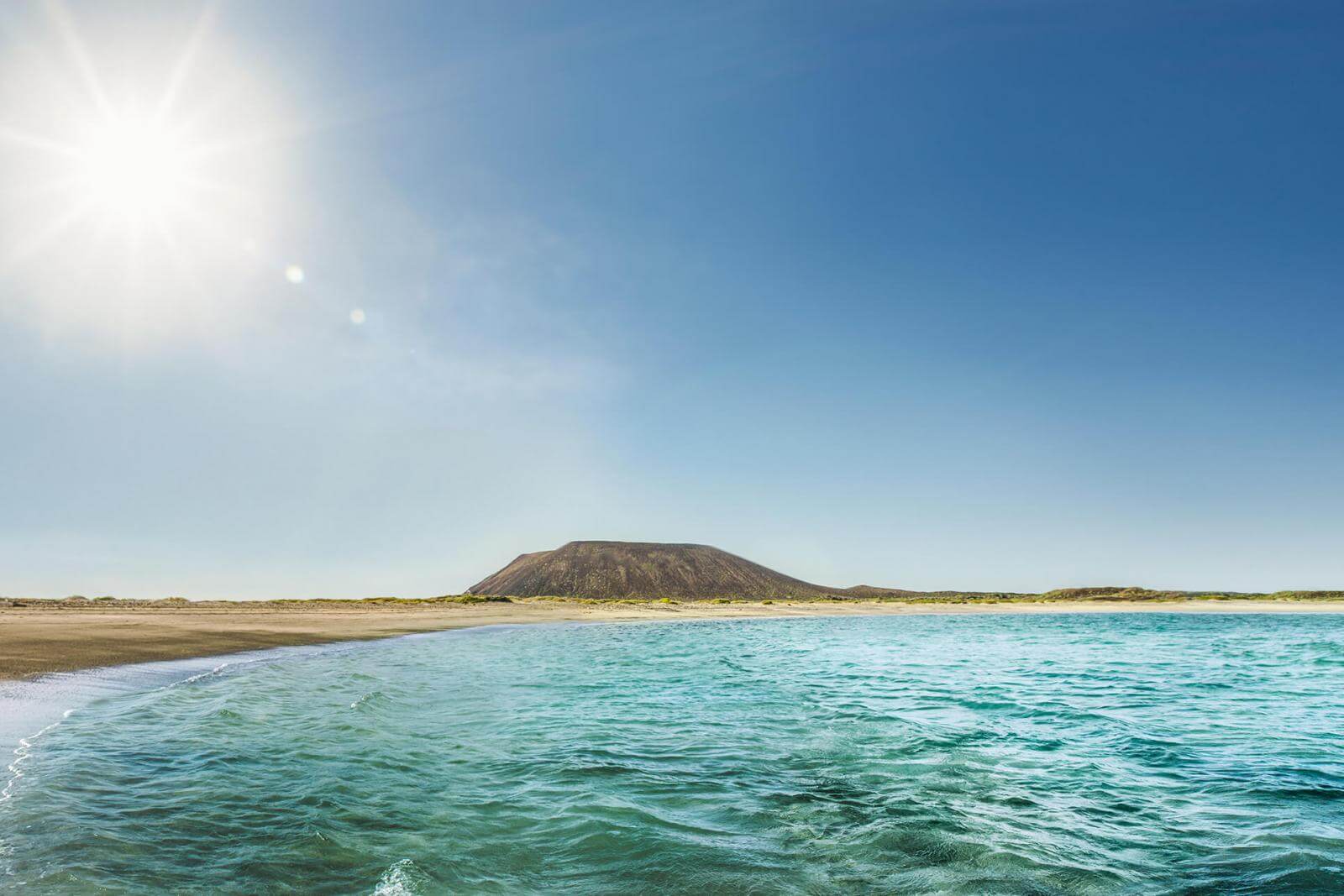
This is complementary insurance. The cover is only activated when the insured party does not hold any other insurance cover that could cover this situation.
Any circumstance known to the insured party prior to starting their trip will be excluded.
Travel assistance guarantees
1. Healthcare transport or repatriation of patients and wounded if they test positive in a PCR test for COVID-19.
If the insured party has COVID-19, the insurance company will assume liability for:
- The cost of ambulance transport to the nearest clinic or hospital.
- Preliminary examination by the insurance company’s medical team, in consultation with the doctor attending the insured party who is sick or wounded, to determine the appropriate measures for the best treatment to follow and the most suitable means for moving them to the most fitting hospital centre or to their home.
- If the insured party is admitted to a hospital centre far from their home, the insurance company will assume the costs of subsequently returning them to their usual place of residence when they are discharged.
The means of transport used will be organised depending on the insured party’s symptoms. When required by the seriousness and urgency of the case, they may be repatriated in a special air ambulance if the patient is in Europe or Mediterranean countries. For any other place, they will be moved by regular airlines.
In order to ensure that appropriate assistance is received, the insurance company’s medical team will be in contact with the medical centre where the insured party is being treated.
2. Medical, surgical, pharmaceutical and hospitalisation costs if the insured party tests positive in a PCR test for COVID -19.
The insurance company will assume liability, up to a limit of €4,500 (with an excess of €100), for any incident resulting from the COVID-19 virus that happens to the insured party during their stay on any of the islands in the Canary Islands archipelago.
- Medical and surgical fees and costs.
- The cost of necessary, prescribed medicines for treating the illness covered by this policy.
- Costs of hospitalisation.
3. Costs of lengthening the insured party’s stay at a hotel if they test positive in a PCR test for COVID-19.
When guarantee 2—medical costs—applies, the insurance company will assume the costs of prolonging the insured party’s stay at a hotel, after hospitalisation and/ or under medical prescription, up to a maximum of €5,000 and 15 days per insured party.
4. Transport or repatriation of parties who have died of COVID-19.
The insurance company will be responsible for all paperwork required at the insured party’s place of death, due to COVID-19, and their transport or repatriation to the place of their burial in their usual country of residence.
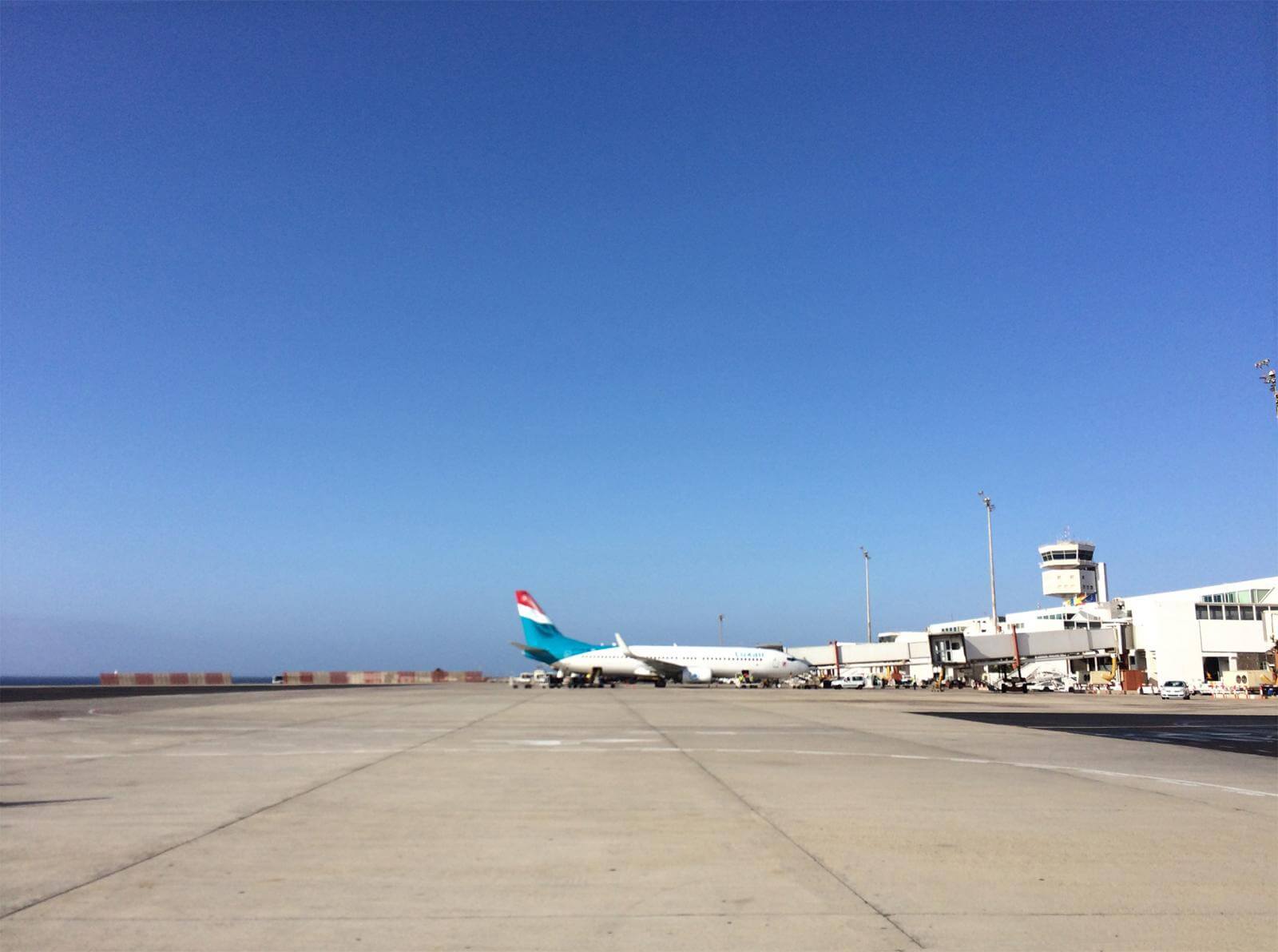
General exclusions relating to all guarantees
- The insurance company’s obligations derived from this policy’s cover end the moment the insured party returns to their usual place of residence or is admitted to a medical centre 25 km at most from that place.
- Any illness or wounds that occur as a result of any pre-existing, serious or chronic illnesses with a risk of worsening that the insured party has, along with any complications and relapses.
- Births or pregnancies, except for unexpected complications due tol COVID-19 during the first seven months.
- With regard to transport and repatriation: costs of burial and funeral.
- If the insured party does not get the recommended vaccinations or medication prior to their trip.
- All resulting costs are excluded from this policy when the trip that is the object of this insurance is a sea cruise.
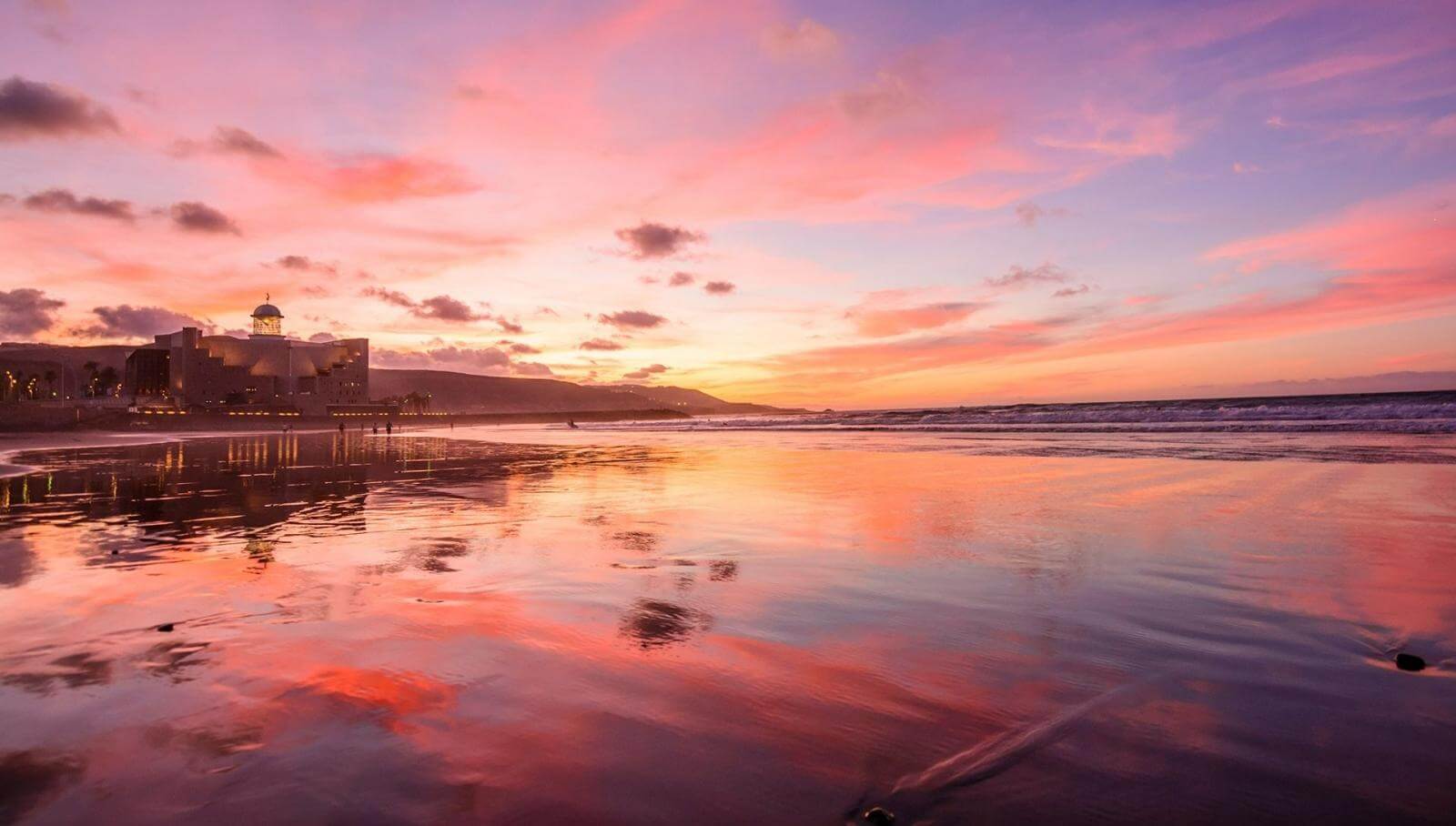
If you have symptoms of COVID-19 during your stay on the Canary Islands:
900 112 061 (Only for calls within Spain, in the event of symptoms of COVID-19) +34 922 842 279 & +34 928 846 579 ( Only for calls from International lines)
- Lanzarote Tourism
- Lanzarote Hotels
- Bed and Breakfast Lanzarote
- Lanzarote Holiday Rentals
- Flights to Lanzarote
- Lanzarote Restaurants
- Lanzarote Attractions
- Lanzarote Travel Forum
- Lanzarote Photos
- Lanzarote Map
- All Lanzarote Hotels
- Lanzarote Hotel Deals
- Last Minute Hotels in Lanzarote
- Things to Do
- Restaurants
- Holiday Rentals
- Travel Stories
- Add a Place
- Travel Forum
- Travellers' Choice
- Help Centre
COVID test for entry - Lanzarote Forum
- Europe
- Spain
- Canary Islands
- Lanzarote
COVID test for entry
- United Kingdom Forums
- United States Forums
- Europe Forums
- Canada Forums
- Asia Forums
- Central America Forums
- Africa Forums
- Caribbean Forums
- Mexico Forums
- South Pacific Forums
- South America Forums
- Middle East Forums
- Honeymoons and Romance
- Business Travel
- Train Travel
- Traveling With Disabilities
- Tripadvisor Support
- Solo Travel
- Bargain Travel
- Timeshares / Holiday Rentals
- Canary Islands forums
- Lanzarote forum

Not true. If you are fully vaccinated, that is all that is required currently.
This is mentioned in previous posts/threads , and seems to have been something to do with hotels not being updated by the hotels concerned , i was under the impression it was sorted
This is the official canaries government tourism website.
If your hotel is insisting on a test, Contact the hotel and refer them to section 1.4
https://www.hellocanaryislands.com/travelling-to-the-canary-islands/
Then within 1.4 refer to paragraph 3
“In addition, a Diagnostic Test of Active COVID-19 Infection will be required regardless of vaccination status or prior infection, for third countries at **high risk** only. Antigen tests taken a maximum of 48 hours before arrival in Spain and NAAT tests (PCR, TMA, LAMP) taken a maximum of 72 hours before arrival in Spain will be accepted. You can check whether your country is a high-risk country here “
If you click the “here” link it takes you to this
https://www.mscbs.gob.es/en/profesionales/saludPublica/ccayes/alertasActual/nCov/documentos/Annex_II_risk_countries_and_areas_between_06-01-2022-and-16-01-2022.pdf
You will note the U.K. does NOT appear on the high risk list.
In many cases in recent months hotels have not updated their websites / auto emails even though the rules have changed. There have been several similar cases on the forums here on TA. When people have received an email like this they have emailed the hotel to challenge them, referring to the hello Canary Islands website, and the hotel has backed down.
If she cannot, how can we overcome this requirement?
No, she can't, you can't get around it. Fully vaccinated only can enter at that age.
Mark T. Hi, are you a UK or an EU citizen please? Different entry rules apply for EU citizens.

I thought it was a question of where a person was resident rather than where they are a citizen of ?
I've puzzled over this, but I think Spooky is right: the Covid rules are based on where you travel from (which may not be the country you are a citizen of). Perhaps I'm wrong. I live in the county I am a citizen of, so haven't needed to explore the distinction for my own purposes.

This ruling will be abolished before the summer when the lost revenue from tourism starts to bite.
Graeme G, it's a bit complicated because there are 2 separate pieces of Spanish legislation. Each can be considered as a "barrier" to entry Spain.
The first barrier is, essentially, designed to restrict entry to non-EU nationals for non-essential purposes. Entry is restricted to EU nationals, non-EU nationals who live in the EU or in a country on a list of exceptions, and non-EU nationals who are fully vaccinated. The exception list does not include the UK.
Once the first barrier is passed, so to speak, the second barrier is about where the person is coming from. Spain has 2 lists, "risk" and "high risk". If you arrive from a country on neither list you can enter. If you arrive from a country on the "risk" list, you can enter with vaccination, negative test, or recovery certificate. For "high risk" you need both vaccination or recovery certificate and negative test.
CB123, the first piece of legislation lasts one month at a time had has, so far, been extended 19 times. The second ends when "the Government declares the end of the health crisis situation caused by COVID-19".
- Are Hipoclub villas too far out of town? Is there a bus? 00:15
- Smoking in public Areas 21:58
- Table reservations 18:34
- Restaurants for large groups old town 17:33
- First time we visit Puerto del Carmen 15:57
- Hotels with 2 bed apartments today
- Tapas today
- Greek restaurant today
- Pick up time today
- Taxi from airport to playa blanca yesterday
- Steak yesterday
- late night supermarket 15 April 2024
- Taxi cost 15 April 2024
- Ev charging points 15 April 2024
- Which Island is the warmest ! 8 replies
- Be Live Lanzarote Resort 30 replies
- UK Passport expiry date 14 replies
- Taxis to Puerto del Carmen 27 replies
- best beaches for nude sunbathing? 17 replies
- Help ..Oasis lanzarote resort now be live lanzarote resort! 54 replies
- club las vistas apartments 4 replies
- Which resort is less windy? 5 replies
- porta del carmen 2 replies
- Weather in February? 9 replies
Lanzarote Hotels and Places to Stay
- Trip Reports - Please provide them here
- Gluten Free In Lanzarote Resorts
- The Beaches Of Lanzarote
- Car hirers 'beware'
- Don't Buy JEWELLERY, ELECTRONICS OR CAMERAS in Lanzarote resorts

- Lanzarote Tourism
- Lanzarote Hotels
- Lanzarote Bed and Breakfast
- Lanzarote Vacation Rentals
- Flights to Lanzarote
- Lanzarote Restaurants
- Things to Do in Lanzarote
- Lanzarote Travel Forum
- Lanzarote Photos
- Lanzarote Map
- All Lanzarote Hotels
- Lanzarote Hotel Deals
- Last Minute Hotels in Lanzarote
- Things to Do
- Restaurants
- Vacation Rentals
- Travel Stories
- Rental Cars
- Add a Place
- Travel Forum
- Travelers' Choice
- Help Center
Covid 19 - Lanzarote Forum
- Europe
- Spain
- Canary Islands
- Lanzarote
- United States Forums
- Europe Forums
- Canada Forums
- Asia Forums
- Central America Forums
- Africa Forums
- Caribbean Forums
- Mexico Forums
- South Pacific Forums
- South America Forums
- Middle East Forums
- Honeymoons and Romance
- Business Travel
- Train Travel
- Traveling With Disabilities
- Tripadvisor Support
- Solo Travel
- Bargain Travel
- Timeshares / Vacation Rentals
- Canary Islands forums
- Lanzarote forum

Yes, it's still a legal requirement to take evidence with you. Stops appear to be random but people are still being asked to show proof.
Thank you. My grand daughter is flying in two hours, and she has had two vaccinations, no booster, but this was in May should that be OK?
If under 18, there is no travel requirement for a booster, if her second vaccination is within 270 days of travel (which it is) she is fine for that too.

BUT - even if she technically complies with the conditions, if she has no NHS pass to prove it, she will be in trouble if she is randomly checked on arrival.

What is NHS pass
Hi Vaishali, the NHS is the UK national health service
Do you mean proof of vaccinations?
Alan, not sure who you are replying to - you can address people by name.
The NHS Covid pass shows your vaccination information. Your relative should have travelled with this. If she hasn't, then she could have a problem if checked on arrival.
Your relative, if Scottish, can access her covid pass here.
https://www.nhsinform.scot/nhs-scotland-covid-status
Mind you, your information indicates she was flying around 1pm so it's too late to do anything about it now.
I thank all that answered my question, and I am sorry that I did not reply to individual names, I was just asking for help from the forum.
About the NHS Pass, I have never heard it called that before, I only knew it as the covid pass, hence my question. Sorry for my ignorance in this subject.
Again, thanks for all your answers,and help.
- Are Hipoclub villas too far out of town? Is there a bus? 7:15 pm
- Smoking in public Areas 4:58 pm
- Table reservations 1:34 pm
- Restaurants for large groups old town 12:33 pm
- First time we visit Puerto del Carmen 10:57 am
- Hotels with 2 bed apartments today
- Tapas today
- Greek restaurant today
- Pick up time today
- Taxi from airport to playa blanca yesterday
- Steak yesterday
- late night supermarket Apr 15, 2024
- Taxi cost Apr 15, 2024
- Ev charging points Apr 15, 2024
- Which Island is the warmest ! 8 replies
- Where to stay in Lanzarote? 7 replies
- best beaches for nude sunbathing? 17 replies
- Weather in February? 9 replies
- Weather in October + Wind 4 replies
- club las vistas apartments 4 replies
- is Lanzarote hot in november?? 6 replies
- Car Hire - Economy Bookings 88 replies
- Papagayo Beach Playa Blanca 8 replies
- Help ..Oasis lanzarote resort now be live lanzarote resort! 54 replies
Lanzarote Hotels and Places to Stay
- Trip Reports - Please provide them here
- Gluten Free In Lanzarote Resorts
- The Beaches Of Lanzarote
- Car hirers 'beware'
- Don't Buy JEWELLERY, ELECTRONICS OR CAMERAS in Lanzarote resorts


IMAGES
COMMENTS
Current COVID situation in Lanzarote. In Lanzarote the current Covid situation corresponds to a level 1, a degree that indicates a low alert level.. Under these levels, indicators of the epidemiological situation of the island, the capacity for assistance and the characteristics of the purulence and vulnerability of the population are taken into account.
Lanzarote has had 69 deaths from Covid 19 since the epidemic began. Peak Numbers. These are the peak numbers and the date when they occurred: Active Cases - 6651 - 20th January 2022. In Hospital - 66 - 28th January 2021. In ICU - 23 - 8th February 2021.
Practical Information. Below you will find useful information to enable you to avoid unpleasant surprises and to enjoy your stay in Lanzarote to the maximum: Before coming. Arriving on the island. Necessary documentation: to travel to the Canary Islands, the only documentation you need to carry with you is your National ID document or passport ...
And if you're visiting the Canaries via mainland Spain and are above the age of 12, you'll have to show either a certificate of full vaccination against COVID-19, a negative COVID-19 test (antigen ...
They will also not be required to present the SpTH health control form or a COVID-19 certificate. Entering from Non-EU or non-Schengen countries. An EU Digital Covid Certificate, EU equivalent of vaccination against COVID-19, a negative certificate of a diagnostic test for active infection, or a certificate of recovery after passing this disease.
Please remember the United States continues to require a negative COVID-19 test taken within 3 days before traveling to the United States, including from vaccinated U.S. citizens. ... You can also find additional information on Spain's Travel Safe website. Assistance: U.S. Embassy Madrid, Spain +34-915-872-200 [email protected] https: ...
The island of Lanzarote, which sits 80 miles off the northwestern coast of Africa, offers a window into tourism where the coronavirus is accepted as endemic and the circulation of foreign visitors ...
From 2 July 2021, the Spanish government requires all arrivals to Spain from the UK (excluding children under the age of 12 years old) to present on entry one of the following: documentation issued within 48 hours prior to arrival in Spain, certifying that you have undertaken a COVID-19 test, e.g. PCR, TMA, LAMP or NEAR, and tested negative.
The tourism website estimates 10% of the island was impacted by the volcano and is currently trying to reconstruct. While the island is open and welcoming visitors, it asks that you respect safety instructions as it rebuilds from the damage done by the volcano. For more information on COVID-19 and travel, check out Lonely Planet's Health Hub.
900 112 061(Only for calls within Spain, in the event of symptoms of COVID-19) +34 922 842 279 & +34 928 846 579 ( Only for calls from International lines) Remember that you must wear a mask if you go to any medical centre in the islands and avoid touching anything with your hands.
Year-round sunshine makes Tenerife, Lanzarote, Gran Canaria and Fuerteventura a popular option for half-term and winter holidays, and until 21 October travellers needed to show proof of full vaccination, recovery from Covid or a negative Covid test. But all these requirements have come to an end and there is no longer any need to fill out a health control form to enter the Canary Islands.
Negative COVID-19 antigen tests may be accepted by health authorities on arrival to the Canary Islands. See here for information from Canary Island Tourism Authority and check any further entry requirements with your travel provider prior to travel. If you are booked into regulated tourist accommodation in the Canaries, you will be obliged to:
Negative COVID-19 antigen tests may be accepted by health authorities on arrival to the Canary Islands. See here for information from Canary Island Tourism Authority and check any further entry requirements with your travel provider prior to travel. If you are booked into regulated tourist accommodation in the Canaries, you will be obliged to:
The World Health Organisation (WHO) declared the end of the COVID-19 global public health emergency on 5 May 2023. At present, there are no restrictions whatsoever for travel to the Canary Islands. Contenido
SOME PLACES IN THE WORLD ARE SPECIAL. Lanzarote is different than other sun and sea destinations. It's an island where nature and art prevail. A place where the people are as warm as they are active and proud. Where the food tastes of the sea and the earth. Where the essence of the island leaves a mark on your soul long after you depart.
Mask rules are easy. For everyone over 6 always indoors in public places, they can be removed when food and drink are in front of you in a restaurant etc. put mask on to go to the toilet. Masks outdoors if you can't maintain 1.5 metres between you and anyone outside your group, so if you're in busy street or on a busy promenade etc.
Read our travel advice and tips for Lanzarote. Get the latest guide & essential information before going to Lanzarote. Discover your smile with TUI%2C the world%27s biggest travel group%2E We offer you even more handpicked holiday choices%2C city breaks%2C short breaks%2C cruises %26 more%2E
It is recommended for travelers who plan on eating street food. Hepatitis A - CDC Yellow Book. Dosing info - Hep A. Hepatitis B. Recommended for unvaccinated travelers of all ages traveling to the Canary Islands. Hepatitis B - CDC Yellow Book. Dosing info - Hep B. Measles. Cases of measles are on the rise worldwide.
Still current at: 17 April 2024 Updated: 10 January 2024 Latest update: Information on the mandatory use of face masks in healthcare settings ('Health' page)
The recovery record or certificate will be valid for 180 days from the date of the positive test and must include the following information: your full name. the date you first tested positive for COVID-19. the type of test administered (e.g. COVID-19 nucleic acid amplification test - NAAT (PCR or similar) or rapid antigen test)
Answer 1 of 8: Hello, i'm wondering if anyone can help. We were due to fly back to the UK yesterday from Lanzarote but our PCR tests came back positive. We know we need to self-isolate for 7 days but are we allowed to go out to purchase food at a supermarket...
Entry requirements. We recommend British passport holders always check FCDO advice before travelling. Some countries require you to complete immigration and health forms before you travel. If you need help completing these, visit your local TUI Store and talk to one of our friendly Travel Experts. If you don't hold a British passport, please ...
The insurance company will assume liability, up to a limit of €4,500 (with an excess of €100), for any incident resulting from the COVID-19 virus that happens to the insured party during their stay on any of the islands in the Canary Islands archipelago. Medical and surgical fees and costs. The cost of necessary, prescribed medicines for ...
65 reviews. 92 helpful votes. COVID test for entry. 2 years ago. Save. Hi. I have read in a few places that currently even fully vaccinated people from England will need a PCR test prior to travelling to Lanzarote. Some websites say this is required by the hotels.
Covid 19 - Lanzarote Forum. Europe ; Spain ; Canary Islands ; Lanzarote ; Lanzarote Travel Forum; Search. Browse all 52,007 Lanzarote topics » Covid 19 Watch this Topic. ... If under 18, there is no travel requirement for a booster, if her second vaccination is within 270 days of travel (which it is) she is fine for that too. Report ...